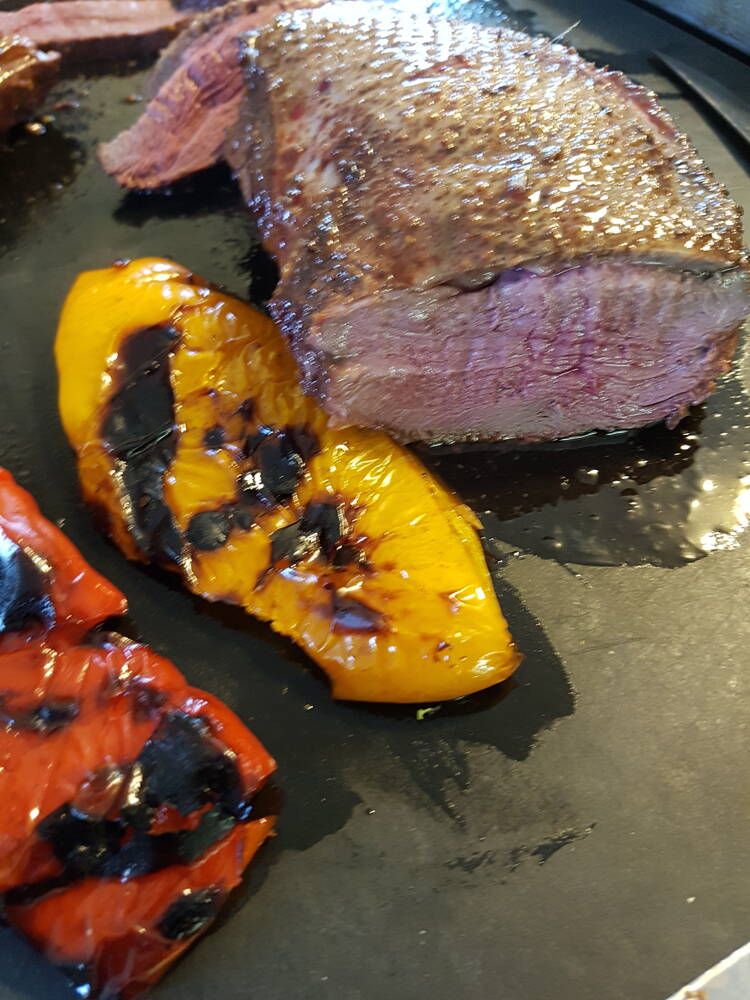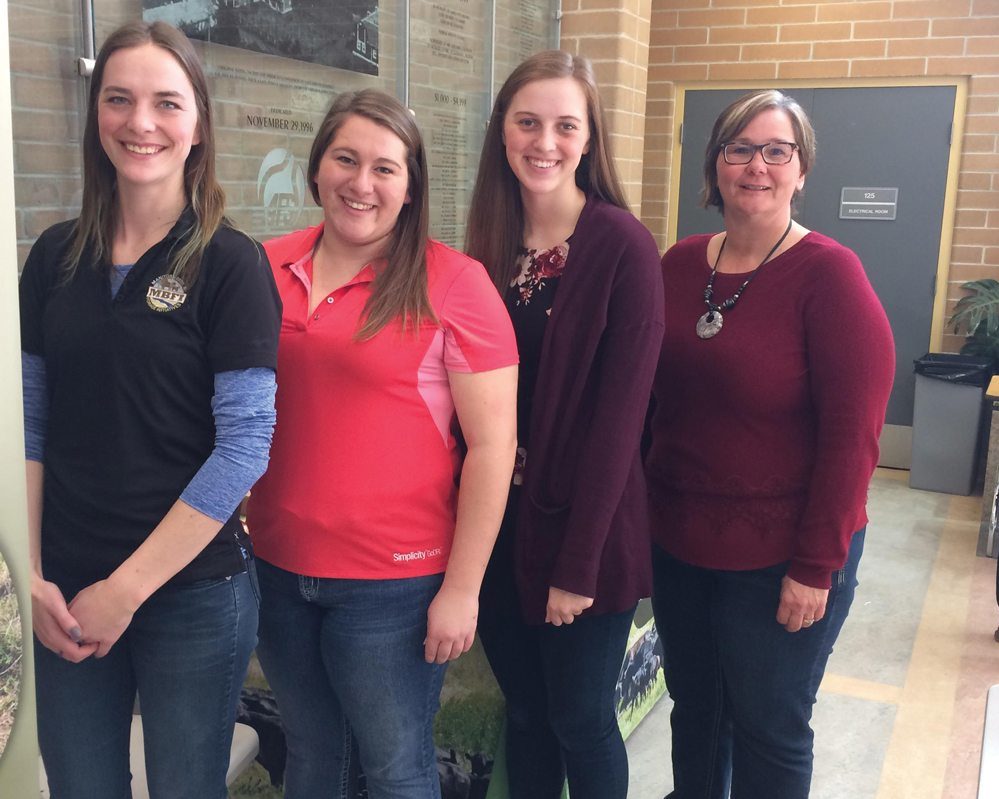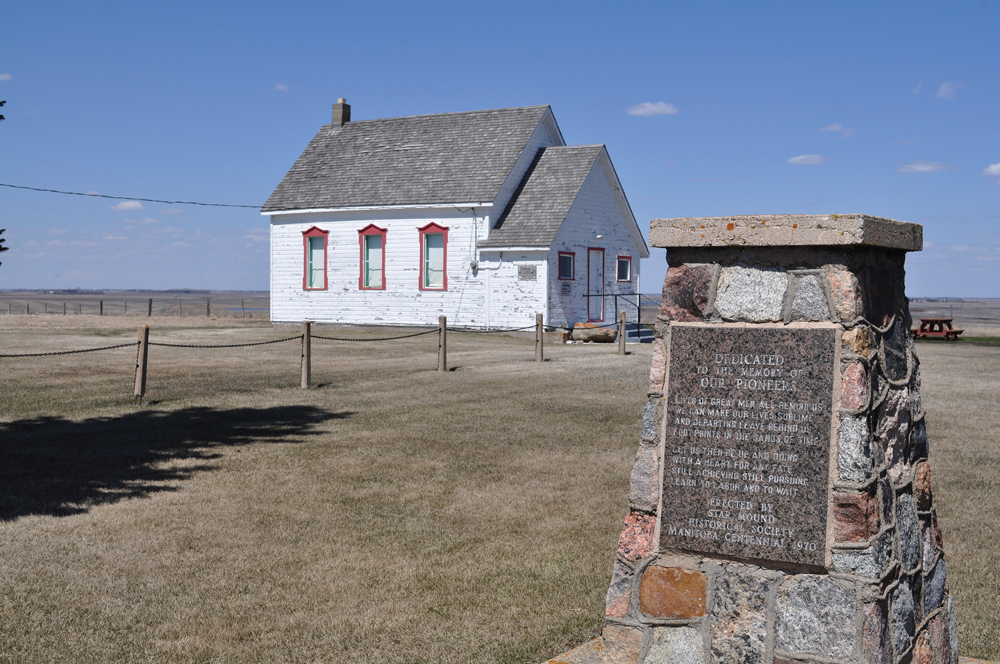Many students work for the summer at one of nearly 170 museums throughout Manitoba. They learn important life skills and workplace management skills on the job. Pam McKenzie, program director and library and archives head at the Royal Aviation Museum of Western Canada in Winnipeg, has worked with many of these summer students. In 2013 she hired a young woman named Raelynn who later presented Pam with a list of all the bits of wisdom she’d gleaned from her job and would apply to her future workplace. She presented that list during the 2015 Association of Manitoba Museums conference and at the Canadian Museum Association National Convention in Toronto. Here is part of her presentation.
Read Also

Giant Canada geese have gone wild in Manitoba
Giant Canada geese are seemingly everywhere and can be fine table fare for local hunters, but 70 years ago, they were borderline extinct.
Iron slowly
Take your time, do a good job. Don’t rush through less-than-stimulating tasks just to get the work done. A radio-controlled aircraft concept model from the early 1930s was bequeathed to the museum that summer. It came packed in newspaper pages of the Winnipeg Free Press dated from November 10 to 17, 1942. We spent the whole afternoon slowly ironing wrinkled newspaper. We were instantly transported back to the war years, to a different age, full of anxiety, and intensity and, surprisingly, hope. How sad it seemed, from our historic vantage point, to be so unaware of what was yet to come, what sacrifices were yet to be demanded of our people. But somehow it seemed strangely uplifting too. It truly felt like we held history in our hands that afternoon. What greater feeling, what better balm for the soul, than actually touching the past.
Listen
Do we ever actually listen when someone talks to us? Working with volunteers is one of the best parts of working at our museum. We have many dedicated, loyal and dependable volunteers who work cheerfully alongside us year after year. From the young people on work placements who clean display cases to the elderly gentlemen who greet our guests at reception, we are one big team. We could never pay our volunteers adequately for all the work they do. Volunteers who come and stay for the sheer enjoyment and interest in their job are the lifeblood of any organization. Raelynn and I enjoyed twice-weekly tea in the library and archives over the summer. Who knew what Duncan did during the war, or that Bob was a paratrooper or that Jake actually flew Lancasters? Or that several of our volunteers have written books, or are professional musicians or artists or photographers. Or were principals or pilots or policemen in real life. Raelynn and I know. Because we listened.
Plumbing precedence
Sometimes it takes a major occurrence to put life in perspective. One day at work as we were doing a he-said, she-said round of intense discussion about some contentious issue, everything suddenly stopped. There was a plumbing problem. Nothing is more important than a plumbing problem. We retreated to our offices to await salvation. Yes, don’t sweat the small stuff, as they say. We worry so much about the details and the minutiae of life. But how much of it will still be significant a week from now, a month or a year from now? Don’t get caught up in the merry-go-round. It is hard to put things in perspective sometimes, especially at work when inundated by people and problems and paperwork. But really, if the plumbing doesn’t work…
Stay longer at your wedding
Even if one never marries, this is a life lesson worth remembering. How often do we motor through something with our sole focus the end in sight? Study hard for four years for your post-secondary degree or put in 10,000 hours of practice to be a world-class musician or athlete. These are noble goals, without a doubt. But my best memories of school are not of the work, but of the experience of being there. Making friends, working together, playing euchre on the bus, discovering Thai food and Irish music. Take your time and enjoy the trip. We actually did vicariously enjoy a wedding this summer courtesy of Mara, a new contract staff member of the museum. We had a lot of advice for her: wear comfortable shoes, don’t cry, eat slowly, thank your parents, make sure you talk to all your guests. And most importantly, stay longer at your wedding. Don’t be in a hurry to leave. Stay late; do the chicken dance and the polka, hug your grandma and kiss your uncles, actually eat some cake. Recognize the event for what it is: a chance to see all the people who mean the most to you, in one place, at one time. This does not happen often in life.
Have faith in people
Let’s lose the modern work ethic of extreme self-sufficiency. Set your own alarm and feed your own fish. But at work, trust that people will do their job. We are all adults, we know our jobs, we will get it done. Conversely, do what you say you will. Soon. Listen to your phone messages, answer your emails, stay on top of your paperwork. Life is so much easier if you’re not constantly treading water. Learn to swim. And have faith in people… have faith in your co-workers, have faith in your volunteers. People live up (or down) to our expectations.
Go to the party
Take the time, make the effort, get dressed and go. That’s one of those very common regrets in life; that you didn’t bother to go to the party, the picnic or the presentation. These are usually once-only events and life is short. This is especially important for funerals. Go, always go. As uncomfortable or emotional as they are for you, they are not about you. Let’s repeat that one: they are not about you. They are for the family and friends of the deceased. Your presence is an affirmation, an acknowledgment of the communal loss of another human being. Even if you go alone, sit in the back and don’t stay for the sandwiches, your presence is your gift. Don’t ever, ever miss the chance to say goodbye. Go to the party.















